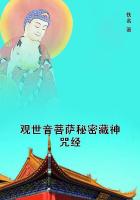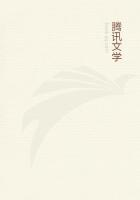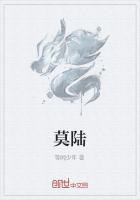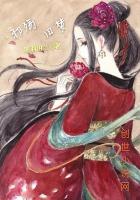The convulsion of 1893 left its victims in dead-water, and closed much education. While the country braced itself up to an effort such as no one had thought within its powers, the individual crawled as he best could, through the wreck, and found many values of life upset. But for connecting the nineteenth and twentieth centuries, the four years, 1893 to 1897, had no value in the drama of education, and might be left out.
Much that had made life pleasant between 1870 and 1890 perished in the ruin, and among the earliest wreckage had been the fortunes of Clarence King. The lesson taught whatever the bystander chose to read in it; but to Adams it seemed singularly full of moral, if he could but understand it. In 1871 he had thought King's education ideal, and his personal fitness unrivalled. No other young American approached him for the combination of chances -- physical energy, social standing, mental scope and training, wit, geniality, and science, that seemed superlatively American and irresistibly strong. His nearest rival was Alexander Agassiz, and, as far as their friends knew, no one else could be classed with them in the running. The result of twenty years' effort proved that the theory of scientific education failed where most theory fails -- for want of money. Even Henry Adams, who kept himself, as he thought, quite outside of every possible financial risk, had been caught in the cogs, and held for months over the gulf of bankruptcy, saved only by the chance that the whole class of millionaires were more or less bankrupt too, and the banks were forced to let the mice escape with the rats; but, in sum, education without capital could always be taken by the throat and forced to disgorge its gains, nor was it helped by the knowledge that no one intended it, but that all alike suffered.
Whether voluntary or mechanical the result for education was the same.
The failure of the scientific scheme, without money to back it, was flagrant.
The scientific scheme in theory was alone sound, for science should be equivalent to money; in practice science was helpless without money.
The weak holder was, in his own language, sure to be frozen out. Education must fit the complex conditions of a new society, always accelerating its movement, and its fitness could be known only from success. One looked about for examples of success among the educated of one's time -- the men born in the thirties, and trained to professions. Within one's immediate acquaintance, three were typical: John Hay, Whitelaw Reid, and William C. Whitney; all of whom owed their free hand to marriage, education serving only for ornament, but among whom, in 1893, William C. Whitney was far and away the most popular type.
Newspapers might prate about wealth till commonplace print was exhausted, but as matter of habit, few Americans envied the very rich for anything the most of them got out of money. New York might occasionally fear them, but more often laughed or sneered at them, and never showed them respect.
Scarcely one of the very rich men held any position in society by virtue of his wealth, or could have been elected to an office, or even into a good club. Setting aside the few, like Pierpont Morgan, whose social position had little to do with greater or less wealth, riches were in New York no object of envy on account of the joys they brought in their train, and Whitney was not even one of the very rich; yet in his case the envy was palpable. There was reason for it. Already in 1893 Whitney had finished with politics after having gratified every ambition, and swung the country almost at his will; he had thrown away the usual objects of political ambition like the ashes of smoked cigarettes; had turned to other amusements, satiated every taste, gorged every appetite, won every object that New York afforded, and, not yet satisfied, had carried his field of activity abroad, until New York no longer knew what most to envy, his horses or his houses. He had succeeded precisely where Clarence King had failed.
Barely forty years had passed since all these men started in a bunch to race for power, and the results were fixed beyond reversal; but one knew no better in 1894 than in 1854 what an American education ought to be in order to count as success. Even granting that it counted as money, its value could not be called general. America contained scores of men worth five millions or upwards, whose lives were no more worth living than those of their cooks, and to whom the task of ****** money equivalent to education offered more difficulties than to Adams the task of ****** education equivalent to money. Social position seemed to have value still, while education counted for nothing. A mathematician, linguist, chemist, electrician, engineer, if fortunate might average a value of ten dollars a day in the open market. An administrator, organizer, manager, with mediæval qualities of energy and will, but no education beyond his special branch, would probably be worth at least ten times as much.
Society had failed to discover what sort of education suited it best.
Wealth valued social position and classical education as highly as either of these valued wealth, and the women still tended to keep the scales even.
For anything Adams could see he was himself as contented as though he had been educated; while Clarence King, whose education was exactly suited to theory, had failed; and Whitney, who was no better educated than Adams, had achieved phenomenal success.
Had Adams in 1894 been starting in life as he did in 1854, he must have repeated that all he asked of education was the facile use of the four old tools: Mathematics, French, German, and Spanish. With these he could still make his way to any object within his vision, and would have a decisive advantage over nine rivals in ten. Statesman or lawyer, chemist or electrician, priest or professor, native or foreign, he would fear none.

